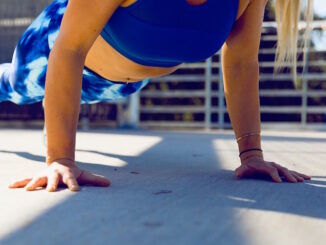
I know what you’re thinking. How is it possible that exercise can boost my energy when I don’t even have the energy to exercise to begin with? It’s simple actually. By utilizing stored up energy, you are making more of it.
The last thing tired people want to do is work out. However, remaining inactive will also make you remain tired. The best thing to do is to get up and take part in some sort of low-intensity physical activity. Lace up your sneakers, head over to GymNation, and get moving, literally!
At the University of Georgia, researchers studied volunteers who had persistent fatigue yet didn’t meet the criteria for a medical condition. Fatigue is a common complaint amongst most adults and at the root of this problem are several issues: poor sleep, too much work and stress, poor diet, and inadequate exercise.
Thirty-six volunteers were divided into three groups: The first engaged in 20 minutes of moderate-intensity aerobic exercise 3 times a week for 6 weeks; the second engaged in low-intensity aerobic exercise for the same time period; the third group did not exercise.
The low and moderate-intensity groups together had a 20% increase in energy levels above those who did not exercise. However, the low-intensity group had a greater loss in fatigue levels than the moderate-intensity group at an increase of 65% compared to 49%.
It’s possible that moderate-intensity exercise is too much for people who are already tired, and that might contribute to them not getting as much of an improvement as they would if they had done the low-intensity exercise. But the results were clear: more exercise equals more energy and less fatigue.
Let us now look at how exercise can do this:
1. Your Endorphins Increase
Endorphins are the “feel-good chemicals” that your body releases during exercise. They trigger a positive feeling in the body, which boosts both your mood and your energy levels.
2. Better Sleep
Society as a whole is always looking at other forms of energy like sports drinks, energy bars, and coffee. About 25% of the population experience constant fatigue. While you may feel like you rely on that cup of coffee to get your day started, by cutting back on caffeine you can actually help get a better night’s sleep.
Those who exercise regularly have healthier sleep patterns. Physical activity during the day helps your body wind down at night so that you have a better sleep. The more restful your sleep is, the more likely you are to be alert and energized the following day, even if you didn’t get in many hours of sleep. Quality is better than quantity in this sense.
3. Improved Endurance
Staying active helps your cardiovascular system work more efficiently while improving your muscle strength and endurance. As a result, when exercise is a part of your routine, you have much more energy to get through the day, and your tasks and chores will feel less like a burden.
4. Getting More Oxygen Into Your Body
The smallest blood vessels in the body, called capillaries, diffuse oxygen from blood into muscle tissue. Mitochondria use oxygen to produce energy for muscle contraction. Muscles use this oxygen to produce energy. Long-term exercise can expand the number of mitochondria in cells thus expanding energy.
Exercise also helps the heart and lungs become more efficient at placing oxygen into the bloodstream and moving the oxygenated blood to the muscles in the body. When this happens it becomes easier to produce energy, leaving you with the feeling that you have more energy.
5. Reformed Focus
You just did your workout, the endorphins are running and you feel great! Now, not only are you physically more energized but mentally as well. Ready to tackle the world and what it brings.
Simple Exercises To Help Boost Your Energy
To keep your energy levels up, engage yourself in plenty of moderate aerobic activity. Any exercise which raises your heart rate, makes you breathe faster, and makes you feel warmer.
There are many different activities that can boost energy. Experts recommend 10 to 45 minutes of daily exercise at a level where you are able to be consistent. Yes, even 10 minutes is better than nothing at all.
Examples of low-to-moderate intensity exercises:
- Walking
- Jogging
- Cycling
- Swimming
- Mowing the lawn
- Playing tennis, or various other sports and games
- Weight lifting
- Body-weight training
- Medicine ball training
- Playing with your kids
- Jump Rope
- Stretches
- Push-Ups
- Crunches
- Pilates
Higher-intensity exercise, which is when you can only talk in single-word answers if at all, can leave you feeling energized for up to three hours after your workout. However, you may feel a wave of fatigue after that which lasts about six hours after the original workout.
Exercise helps us battle fatigue and feel more energized in general, but too much can have the opposite effect. Be sure to give yourself plenty of recovery time, especially if you are just starting out. Remember, it’s about being able to do something which you can be consistent in and make it a regular routine.
The food that you eat also plays a huge role in your energy levels! In addition to getting regular exercise, be sure to fuel your body with wholesome foods throughout the day to keep your energy levels up and maintained.
As long as an activity gets your heart pumping and your body warmed up, you’ll experience some positive effects, including an energy boost. Choose something you enjoy and make it a solid part of your routine. If you stick with it, you’ll not only experience an immediate burst of energy when you need it but will also feel more energetic in the long-term.



